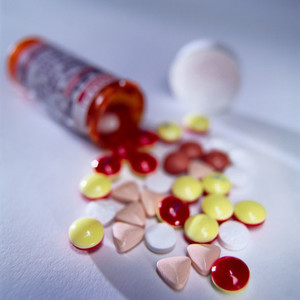In Japan, Daiichi Sankyo has won its first worldwide marketing approval. The drug is laninamivir - long-acting neuraminidase inhibitor. The firm will market the drug as Inavir.
Daiichi Sankyo pursues a global strategy
Home/Pharma News
|
Posted 07/01/2011
 0
Post your comment
0
Post your comment

Laninamivir was developed by Biota Holdings Limited, an Australian company with expertise in respiratory diseases, particularly influenza. The company developed the neuraminidase inhibitor zanamivir, which was subsequently marketed by GlaxoSmithKline as Relenza.
The new drug Inavir is administered as a prodrug, which is converted to active laninamivir in the body. It delivers the drug directly to the infected airways of influenza patients, and a single inhaled dose is claimed to be as effective as a five-day course of oseltamivir for treatment of influenza.
As part of the agreement, Daiichi Sankyo will undertake extensive Japanese clinical trials and pay Biota a royalty on all sales in Japan.
Daiichi Sankyo is already benefiting from its partnership with Indian generics firm Ranbaxy. Ranbaxy has extensive manufacturing and marketing capability in many parts of the world, where its Japanese owner is not represented directly. For example, in Romania 2009, Ranbaxy began to market the osteoporosis treatment Evista (raloxifene). In future, such activities will increasingly be seen in European markets where Daiichi Sankyo does not yet have its own organisation.
Operating income of the Japanese pharmaceutical group is forecast to rise to about Euros 1.2 billion by the end of fiscal year 2012. This represents an increase of more than 50% compared with fiscal year 2009. Operating profit is expected to rise even more than turnover.
The main sales drivers in Europe are the anti-hypertensive medicines of the olmesartan family, followed by Efient (prasugrel), an antiplatelet medicine introduced last year. An oral factor Xa inhibitor (edoxaban), a medicine designed to treat atrial fibrillation and a treatment for venous thrombosis, which is currently being investigated in phase III clinical studies. In oncology, Daiichi Sankyo is also part of several partnerships, including ones with the Munich biotech company Morphosys, the Swedish biotech company BioInvent and the US companies ArQule and Amgen.
Daiichi Sankyo’s strategic goal by 2015 is to generate more than 60% of global turnover outside Japan. The rate is currently about 45%. As a result, Europe is playing an ever increasing role within the group.
Backed by a strong R & D ratio of Daiichi Sankyo is doing considerably better than the industry average.
Related article
Ranbaxy to transfer R & D and focus on generics
Source: Daiichi Sankyo, Biota, Australian Government Investor Updates
Guidelines
US guidance to remove biosimilar comparative efficacy studies
New guidance for biologicals in Pakistan and Hong Kong’s independent drug regulatory authority
Policies & Legislation
EU accepts results from FDA GMP inspections for sites outside the US
WHO to remove animal tests and establish 17 reference standards for biologicals
Formycon signs new aflibercept biosimilar pacts and launches ranivisio in Europe

Home/Pharma News Posted 13/11/2025
Bio-Thera and Stada expand biosimilars alliance to include tocilizumab

Home/Pharma News Posted 20/10/2025
The best selling biotechnology drugs of 2008: the next biosimilars targets








Post your comment